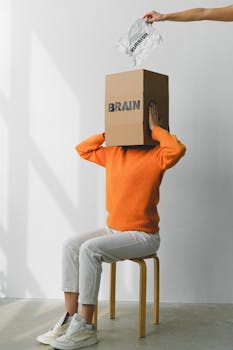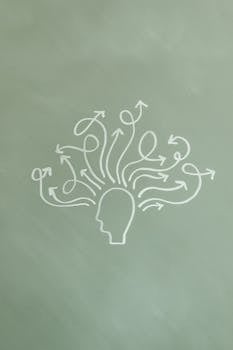Unmasking the Enigma: A Journey into the Mind of Psychosis
Keywords: Psychosis, schizophrenia, psychosis symptoms, delusional disorder, hallucinations, mental health, treatment, recovery, bipolar disorder, antipsychotic medication, cognitive behavioral therapy, support groups, mental illness awareness
Psychosis. The very word conjures images of fragmented realities and fractured minds. It's a term shrouded in misunderstanding and often stigmatized, yet understanding psychosis is crucial to fostering compassion, improving treatment, and ultimately, enabling recovery. This article delves into the intricacies of psychosis, separating fact from fiction and providing a comprehensive overview of its causes, symptoms, diagnosis, and treatment.
What is Psychosis?
Psychosis isn't a single disorder; rather, it's a symptom cluster that can manifest in various mental illnesses. It's characterized by a disconnection from reality, leading to profound alterations in perception, thought, and behavior. Individuals experiencing psychosis may exhibit:
- Hallucinations: These involve perceiving things that aren't there. They can be auditory (hearing voices), visual (seeing things), tactile (feeling sensations), olfactory (smelling things), or gustatory (tasting things). Hallucinations can be incredibly vivid and distressing.
- Delusions: These are fixed, false beliefs that are resistant to logic or evidence. Delusions can range from grandiose beliefs (believing one has exceptional powers) to persecutory beliefs (believing one is being followed or harmed).
- Disorganized Thinking and Speech: This can manifest as difficulty expressing thoughts coherently, jumping from topic to topic (loose associations), or using made-up words (neologisms).
- Disorganized or Abnormal Motor Behavior: This can include unusual movements, catatonia (immobility), or unpredictable agitation.
- Negative Symptoms: These involve a decrease or absence of normal functions, such as reduced emotional expression (flat affect), lack of motivation (avolition), and difficulty experiencing pleasure (anhedonia).
- Schizophrenia: This is a chronic brain disorder characterized by persistent psychosis, along with other symptoms like negative symptoms and cognitive deficits.
- Bipolar Disorder: Individuals with bipolar disorder may experience psychotic symptoms during manic or depressive episodes. These episodes are often cyclical.
- Schizoaffective Disorder: This disorder combines features of schizophrenia and mood disorders, with persistent psychotic symptoms alongside mood episodes.
- Delusional Disorder: This condition is characterized by the presence of non-bizarre delusions (delusions that could conceivably be true) without other significant psychotic symptoms.
- Brief Psychotic Disorder: This involves a sudden onset of psychotic symptoms that last less than a month.
- Genetics: Family history of psychosis significantly increases the risk.
- Brain Structure and Function: Neuroimaging studies have revealed structural and functional abnormalities in the brains of individuals with psychosis.
- Neurotransmitters: Imbalances in neurotransmitters, such as dopamine, are implicated.
- Environmental Factors: Stressful life events, trauma, and substance abuse can trigger or exacerbate psychotic symptoms.
- Antipsychotic Medications: These medications help reduce the severity and frequency of psychotic symptoms. Different types of antipsychotics are available, and finding the right medication and dosage often requires trial and error.
- Psychotherapy: Cognitive Behavioral Therapy (CBT) can help individuals manage their symptoms, cope with stress, and improve their overall functioning. Family-focused therapy can also be beneficial.
- Social Support: Strong social networks and support groups play a vital role in recovery.
- Hospitalization: In some cases, hospitalization may be necessary to stabilize acute psychotic episodes and ensure safety.
Conditions Associated with Psychosis:
While psychosis can occur in various circumstances (e.g., due to drug use, brain injury), several mental illnesses are strongly associated with it:
Causes of Psychosis:
The exact causes of psychosis are complex and often multifaceted. Research suggests a combination of genetic predisposition, environmental factors, and neurobiological processes play a role. These factors include:
Diagnosis and Treatment:
Diagnosing psychosis involves a comprehensive assessment by a mental health professional, including a thorough psychiatric evaluation, neurological examination, and sometimes, brain imaging. Treatment typically includes:
Recovery and Living with Psychosis:
Recovery from psychosis is possible, though it's often a long-term process that requires ongoing support and treatment. Many individuals with psychosis can lead fulfilling lives with appropriate management of their condition. Early intervention is key, and access to comprehensive mental health services is essential for improving outcomes.
Breaking the Stigma:
The stigma surrounding psychosis remains a significant barrier to seeking help and recovery. Open conversations, accurate information, and compassionate understanding are crucial to dismantling this stigma and creating a supportive environment for individuals living with psychosis. By fostering empathy and promoting education, we can help those affected navigate their journey toward recovery and live meaningful lives. Remember, psychosis is a treatable condition, and recovery is possible.


